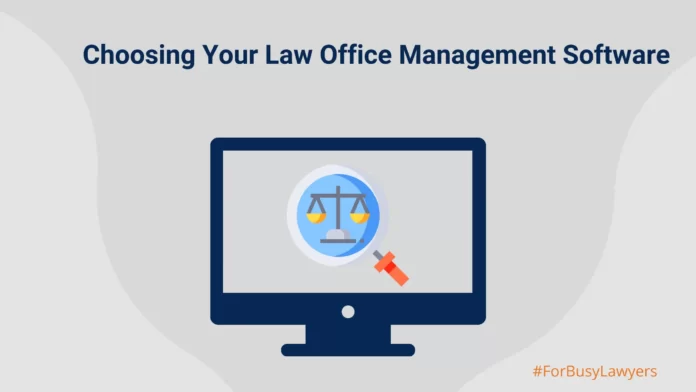In the legal industry, the effective management of cases, clients, documents, and deadlines is crucial for the success of a law firm. With the advancements in technology, law firms are now turning to legal practice management solutions to streamline their operations and improve efficiency. These solutions offer a wide range of benefits that can significantly enhance the productivity and profitability of a law firm. In this article, we will explore the top five benefits of implementing a legal practice management solution.
1. Enhanced Organization and Efficiency
One of the key benefits of a legal practice management solution is improved organization and efficiency in managing cases and clients. These solutions provide centralized platforms where law firms can store and access all case-related information, including client details, case documents, and important deadlines. This eliminates the need for manual paperwork and reduces the time spent searching for information. By having all the necessary information at their fingertips, lawyers and support staff can work more efficiently, enabling them to provide better service to their clients.
2. Streamlined Workflow and Task Management
Legal practice management solutions offer robust workflow and task management capabilities, allowing law firms to streamline their processes and improve collaboration among team members. These solutions enable the creation of automated workflows, where tasks are assigned, tracked, and monitored in a centralized system. This eliminates the need for manual follow-ups and reduces the risk of missed deadlines or overlooked tasks. With clear visibility into the progress of each case and the ability to assign and prioritize tasks effectively, law firms can optimize their workflow and ensure that all tasks are completed in a timely manner.
3. Efficient Document Management
Document management is a critical aspect of legal practice, and a practice management solution can greatly enhance this process. These solutions offer features such as document storage, version control, and document sharing, making it easier for law firms to manage and collaborate on case-related documents. With centralized document repositories, lawyers can quickly access the latest versions of documents, collaborate with colleagues, and share documents securely with clients. This streamlines the document review and approval process, reducing the risk of errors or miscommunication and improving overall productivity.
4. Better Client Communication and Service
Client communication is essential for building strong relationships and delivering exceptional legal services. A legal practice management solution provides tools and features that facilitate effective client communication. These solutions often include client portals, where clients can securely access case-related information, share documents, and communicate with their lawyers. Additionally, practice management solutions offer features such as email integration and appointment scheduling, enabling efficient communication and seamless client interaction. By providing transparent and timely communication, law firms can enhance client satisfaction and loyalty.
5. Comprehensive Analytics and Reporting
Legal practice management solutions offer robust analytics and reporting capabilities, providing law firms with valuable insights into their operations and performance. These solutions generate reports on various metrics, such as case profitability, billable hours, and resource allocation. By analyzing these reports, law firms can identify trends, measure the efficiency of their processes, and make data-driven decisions. Comprehensive analytics enable law firms to optimize their resources, identify areas for improvement, and implement strategies to increase profitability and productivity.
In conclusion, implementing a legal practice management solution offers significant benefits for law firms. From enhanced organization and efficiency to streamlined workflows, efficient document management, improved client communication, and comprehensive analytics, these solutions empower law firms to operate more effectively and deliver exceptional legal services. By leveraging technology to automate and streamline processes, law firms can focus on their core competencies, increase productivity, and achieve greater success in the competitive legal industry.








